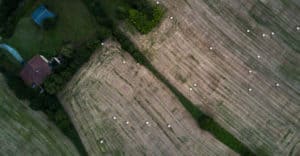NFU Policy archive
The holding place for all policy entries in the NFU site – policy briefs and papers.

Sommaire des recommandations de l'Union nationale des fermiers au Nouveau-Brunswick dans le cadre de la Consultation sur la Politique sur l'utilisation des terres agricoles
<strongRecommandation 1.0 : </strongQue les terres cultivables ont une valeur inhérente comme partie d'un écosystème plus vaste ; donc, la protection des terres agricoles comprend intrinsèquement la protection des forêts et des cours d'eaux environnants. Ce principe fondamental devrait guider la Politique sur l'utilisation des terres agricoles et les réglementations qui en découlent.<strongRecommandation 2.1 </strong: Que la Politique sur l'utilisation des terres agricoles s'efforce d'encourager une diversité d'entreprises agricoles prospères au lieu des modèles d'entreprises de type vertical. La Politique devra limiter le montant de terres publiques (de la Couronne) mises en disponibilité aux compagnies verticalement intégrées pour leur propre production et transformation primaire, afin d'éviter que des entreprises monopolisent un certain marché.
Read More
NFU-NB Submission to Government of New Brunswick Agricultural Land Policy Consultation
The National Farmers Union in New Brunswick – Union Nationale des Fermiers au Nouveau-Brunswick submission to Government of New Brunswick Agricultural Land Policy Consultation, presented to Rob English and Andrew Breau, Fredericton, NB, December 2015.
Read More
Submission on the Development of the PEI Water Act
PDF Version <strongNFU District 1, Region 1</strong <strongSubmission concerning</strong<strongThe Development of the Prince Edward Island Water Act</strong<strongPresented to the PEI Environmental Advisory Council </strongNovember 3, 2015 <strong<emThe members of the generation which is in power must not treat the earth as something given by their parents, but rather as something borrowed from their children. </em</strong(National Farmers Union Policy G-6 #1)
Read More
NFU Submission to Manitoba Agriculture Risk Management Review Task Force
PDF Version Agriculture Risk Management Review Task Force809-401 York AveWinnipeg, ManitobaR3C 0P8 September 30, 2015
Read More
Election 2015 – Talking About Agriculture
During this federal election campaign, voters have the opportunity to speak with local federal election candidates about agriculture, farming and food. The National Farmers Union advocates on key policy issues from the perspective of family farmers. Our positions are put forward by grassroots members and adopted through a democratic process of debate and voting at national conventions. The following short summaries of critical issues are resources for your conversations with candidates.For more detailed information, and information on additional topics, please see the rest of our website.The easiest way to do this is by typing your keyword into the “search” tool in the top right-hand corner of the screen.
Read More
UNF Présentation au Comité sénatorial sur les priorités d’accès au marché international
<strongPrésentation de l’Union nationale des fermiers au Comité sénatorial de l’agriculture et des forêts </strong<strongÉtude sur les priorités d’accès au marché international concernant le secteur agricole et agroalimentaire canadien</strong <strongPrésentation du 2 juin 2015</strongversion PDF Lire la transcription officielle de la réunion du Comité du Sénat avec témoin de Terry Boehm L’Union nationale des fermiers (UNF) est une organisation nationale bénévole, non partisane et avec adhésion directe,
Read More
NFU brief to Senate study on international market access priorities
The NFU believes that international relations must be based on mutual respect for the whole of each society, that trade can be conducted fairly without destroying the cultural and economic institutions people have built, and that democracy means that people have a real say in the economic choices that affect their lives. We urge that the federal government develop a national food and agriculture policy that reflects these values instead of pursuing the ever-tightening noose of corporate control embodied in the FTAs.
Read More
UNF Présentation au Comité sénatorial sur les priorités d’accès au marché international
Présentation de l’Union nationale des fermiers au Comité sénatorial de l’agriculture et des forêts Étude sur les priorités d’accès au marché international concernant le secteur agricole et agroalimentaire canadien Présentation
Read More
NFU brief to Senate study on international market access priorities
The NFU recommends that trade in agriculture be treated separately and excluded from comprehensive trade agreements such as NAFTA, CETA and the TPP; precautionary and provisional intellectual property enforcement mechanisms be eliminated from free trade agreements and national legislation; Investor-State Dispute Settlement be eliminated from free trade agreements and that Canadian courts independently rule on disputes; All legislation and trade measures in agriculture be assessed for their impact on Canadian farmers’ income and debt, and only be enacted when they have a positive effect on farmers’ income, community and the environment; Excess rail revenues be returned to farmers; The CGC mandate remain solely “in the interests of grain producers”; The Canadian Wheat Board should be re-instated as the democratically directed farmer-run marketing agency for prairie wheat, durum and barley; Supply Management should be maintained, and protected from external assaults; and finally, Canada's regulatory system for GMOs should include farmer input and evaluation of social, ethical and market impacts.
Read More
Bill C-48, An Act to amend the Canada Grain Act – Key Points
Download PDF version Prepared by the National Farmers Union, March 2015 <strongThe National Farmers Union urges MPs to vote against Bill C-48 because it:</strongstops the Canadian Grain Commission from carrying out its work in the interests of grain farmersallows government to end bond security system that now pays farmers if a licensed grain company defaultscreates room for political interference with Standards Committee appointments, a critical component of grain grading systemrequires imported grain to be given best possible Canadian gradeprovides government with increased powers that can be used to enfor
Read More
Submission to CGC on Licensing of Feed Mills
<strong</strongDownload PDF Version <em"The Canadian Grain Commission is seeking input from feedmills, grain producers, current licensees, and other industry stakeholders on a proposal to license feed mills and to assist in the development of licensing requirements for feed mills.
Read More
NFU Submission to CGC Consultation on Canadian Wheat Class Modernization
PDF version The National Farmers Union (NFU) welcomes the opportunity to comment on the Canadian Grain Commission’s (CGC) proposed changes to Canadian wheat classes as presented in <strong<emCanadian wheat class modernization Consultation document, February 20, 2015</em</strong .
Read More